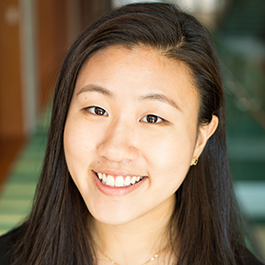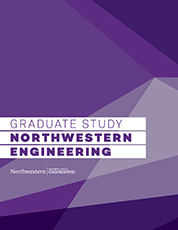Designing A Tool to Combat Math Anxiety
Diana Jeong Ro (EDI '20) talks about her Engineering Design Innovation (EDI) thesis project and her attempt to help overcome anxiousness about math.
 Ninety-three percent of Americans say they feel some sort of anxiety when it comes to doing math. More than 10 percent of college students in the US have such severe anxiety around math that it warrants counseling.
Ninety-three percent of Americans say they feel some sort of anxiety when it comes to doing math. More than 10 percent of college students in the US have such severe anxiety around math that it warrants counseling.
Those statistics, both cited in a Harvard Business Review article about how "Americans Need to Get Over Their Fear of Math," validated Diana Jeong Ro's feelings about math. Jeong Ro (EDI '20) enjoyed the subject growing up, and she earned an undergraduate degree in applied mathematics. Yet, along the way, she herself developed math anxiety.
"I realized that it has nothing to do with your level of math ability," Jeong Ro said, "and current education doesn't have any solutions to address how emotionally rooted math anxiety is."
For her thesis project in Northwestern's Engineering Design Innovation (EDI) program, Jeong Ro wanted to see if she could use her hybrid education in math and design to bridge the two fields to complement each other. She created Pascal, a teaching tool that seeks to guide individuals through the personal development needed to overcome math anxiety.
"Pascal is an attempt to combat the myth that people are inherently good or bad at math, and that it is a skill you develop, not a talent you're born with," she said.
Pascal is a digital companion app that walks through your needs and goals to craft a holistic training program at the intersection of math education and behavioral therapy. The app was inspired by fitness training programs that promote improvement of both mind and body.
"Preparing for a big exam is similar to preparing for a marathon in that it takes a balance of challenge and recuperation over a length of time that can't be crammed overnight," Jeong Ro said. "This training program is a customized plan of daily activity modules focused on coaching how to study, anxiety journaling, and math philosophy applications. Building these habits daily seeks to prepare you for your goal, whether it be a big exam or just general improvement."
Jeong Ro interviewed a wide variety of stakeholders for her project, including professors, administrators, high school and college department leaders, tutors, and current and former students — including those who felt they were good at math and those who felt they were bad at math. The COVID-19 pandemic forced her to conduct her research remotely, but an unexpected benefit was that it allowed her to connect with stakeholders across the country, including some of her former high school teachers and administrators.
When she began her thesis, which spans two quarters of the EDI program, Jeong Ro thought she would create a solution that teachers could incorporate, such as a new way to structure the curriculum. Her research helped her realize she would need to change her expectations.
"I was entering a space where I was not an expert since math anxiety and math education reform are topics that experts have been working on for a long time," she said. "Therefore, I thought my efforts would be more useful if I were to focus on how to support people on an individual level, like providing a companion-type service."
One of the biggest lessons Jeong Ro learned in EDI was the importance of patience in the design process, and that was paramount in her thesis. She also came to appreciate how no good design is created alone. She leaned on her classmates, her EDI faculty mentor Mike Edmonds, as well as other faculty and alumni of the program, to help develop a product she was proud of by the end of her two quarters.
Jeong Ro still remembers learning about the thesis project when she was considering applying to EDI. She was impressed by the depth of the students’ work and the growth they experienced throughout the process. Now that she's completed her own thesis, she's grateful for the time she spent and encourages anyone considering the program to take full advantage.
"I was compelled by the opportunity to spend so much time focused on a problem that means so much to me," Ro said. "The work you get to do in EDI has a real-world impact, and is driven by your own personal aspirations. That's a very lucky spot to be in as a designer."
This post is part of a series of stories that examines EDI thesis projects.

